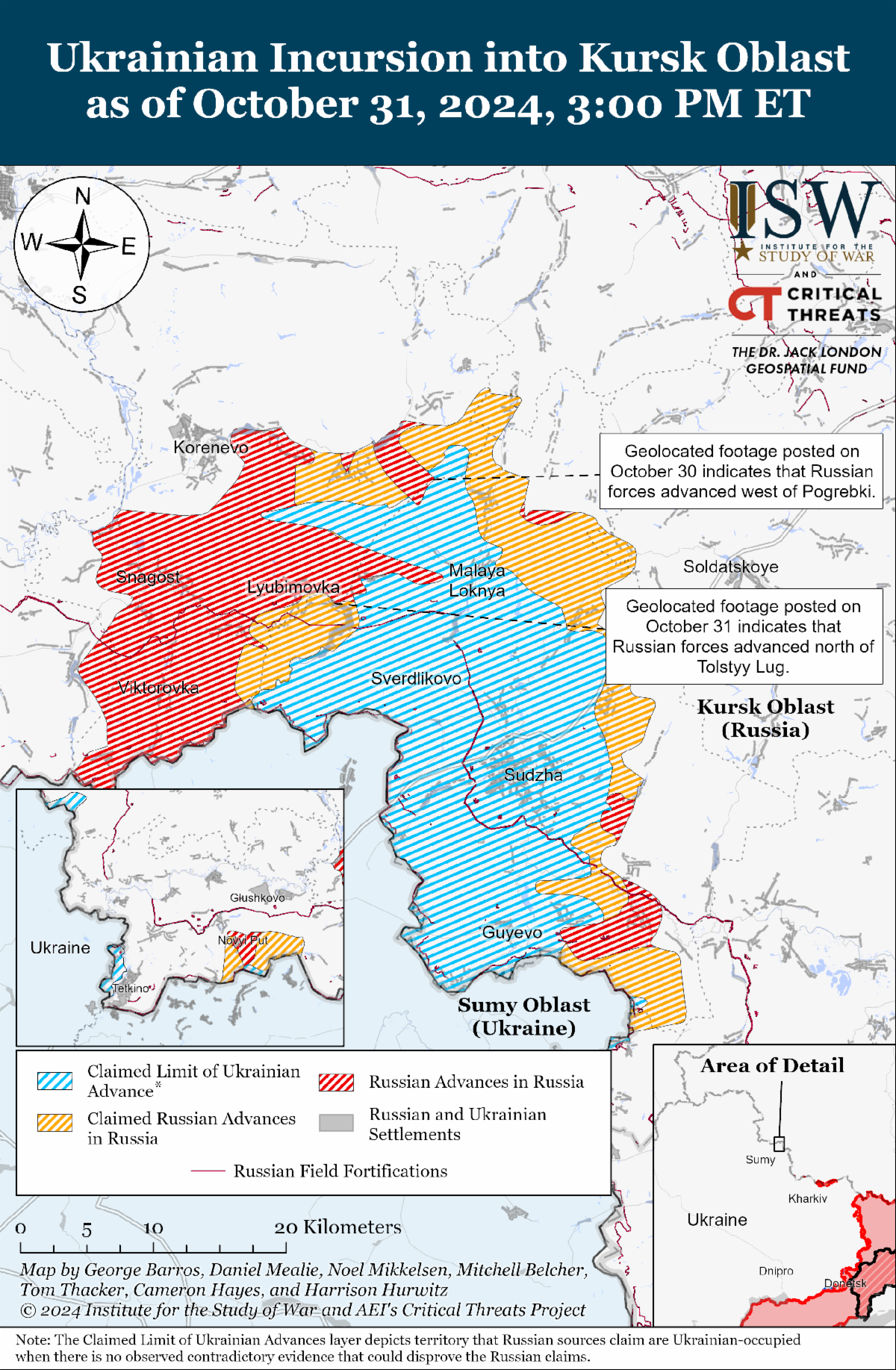North Korea and Russia signed an agreement on October 30 to cooperate in the sphere of digital communications — the latest development in Russian-North Korean cooperation likely aimed at enhancing the Kremlin's digital authoritarianism tools to increase domestic repressions. The North Korean Ministry of Information Technology and the Russian Ministry of Digital Development, Communications, and Mass Media signed a cooperation agreement on October 30 that includes cooperation in the fields of communications, information technology, and digital development. Russia and North Korea signed an agreement on joint work between the Russian and North Korean prosecutor generals' offices in July 2024, after which Russian Prosecutor General Igor Krasnov stated that Russia wanted to learn about North Korean judicial practice, particularly in the spheres of communication and information technology. ISW previously assessed that the North Korean-Russian judicial agreement was likely part of Kremlin efforts to increase Russia's arsenal of domestic control methods and consolidate control over the Russian information space, including via messaging platforms and virtual private network (VPN) services. The details of the October 30 digital communications agreement are unclear, but it is likely similarly aimed at increasing Russia's tools for domestic information space repression.
The South Korean government reportedly intends to send an unspecified number of South Korean personnel to Ukraine to monitor North Korean troops. South Korean newspaper Hankyoreh reported on October 31 that a senior South Korean presidential office official stated on October 30 that South Korea has a "legitimate need" to analyze North Korean military activities in the war in Ukraine and "feels the need" to establish a team to monitor North Korean troops and the battlefield situation. South Korean Defense Minister Kim Yong-hyun reportedly stated on October 31 that the South Korean defense minister can make the decision about the monitoring team's deployment without parliamentary approval. South Korea's Yonhap News Agency reported on October 22 that a South Korean government source stated that South Korea was considering sending South Korean military personnel, likely from intelligence units, to Ukraine to monitor North Korean forces' tactics and combat capabilities and to question captured North Koreans. Ukrainian President Volodymyr Zelensky stated on October 29 that he discussed enhanced intelligence cooperation with South Korean President Yoon Suk Yeol.
Key Takeaways:
- North Korea and Russia signed an agreement on October 30 to cooperate in the sphere of digital communications — the latest development in Russian-North Korean cooperation likely aimed at enhancing the Kremlin's digital authoritarianism tools to increase domestic repressions.
- The South Korean government reportedly intends to send an unspecified number of South Korean personnel to Ukraine to monitor North Korean troops.
- Russian President Vladimir Putin continues to communicate that he is uninterested in a negotiated ceasefire and is committed to achieving his goal of destroying Ukrainian statehood.
- Ukraine's Western partners continue to provide military aid to Ukraine and ensure future aid provisions over the long-term.
- The Russian military command continues to commit seriously wounded personnel to highly attritional infantry-led “meat” assaults in the Kurakhove direction as Russian President Vladimir Putin attempts to posture himself as deeply concerned with the medical treatment of Russian veterans.
- The Moldovan Constitutional Court confirmed on October 31 the passing of the October 20 European Union (EU) referendum with a 50.72 percent turnout rate.
- Russian forces recently advanced near Kupyansk, Svatove, Pokrovsk, Kurakhove, and Vuhledar, and Ukrainian forces recently regained lost positions near Kurakhove.
| 





 [ISW] 이스라엘-하마스 전쟁(이란) 업데이트, 2024년 10월 31일
[ISW] 이스라엘-하마스 전쟁(이란) 업데이트, 2024년 10월 31일
 [군사국방] KIMA Newsletter [제1710호, 2024.10.31] 차기 미국 ...
[군사국방] KIMA Newsletter [제1710호, 2024.10.31] 차기 미국 ...